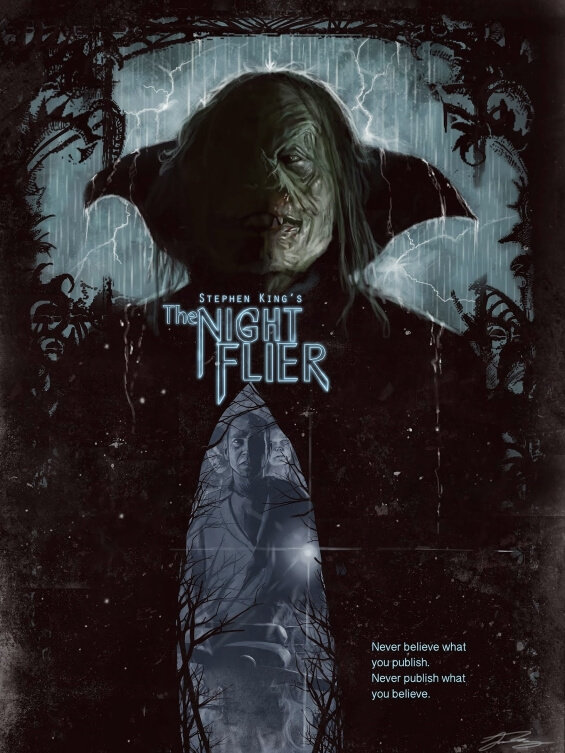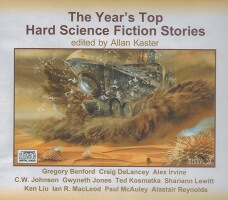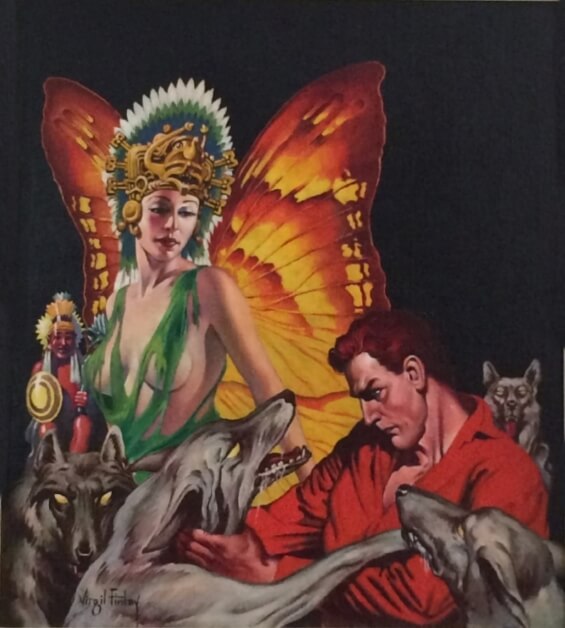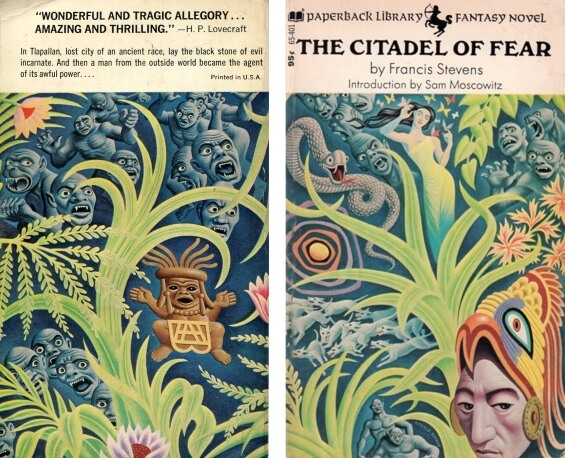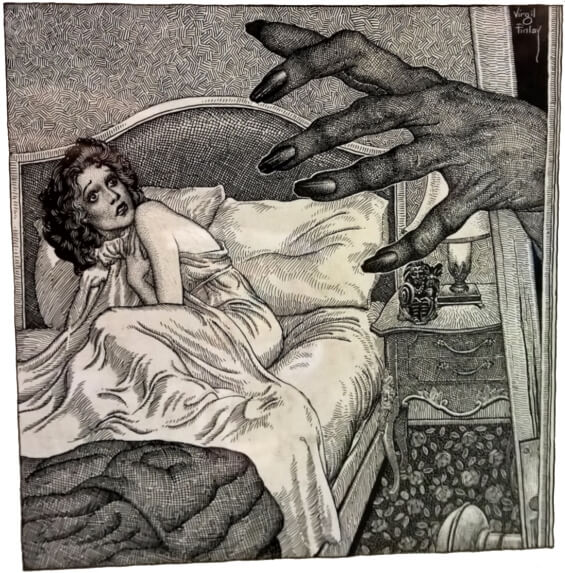
 The SFFaudio Podcast #447 – Jesse and Paul Weimer talk about The Forever War by Joe Haldeman
The SFFaudio Podcast #447 – Jesse and Paul Weimer talk about The Forever War by Joe Haldeman
Talked about on today’s show:
1974, if everybody in the modern era writes like him…, depth beyond the good writing and the ideas, what does it MEAN?!, a straightforward 1970s novel, ever further into the future, future-shock, war, Ken Burn’s Vietnam documentary series, accelerated time, mid-2016 and now, WHAT the bleep has HAPPENED?, clown show, a politically traumatic time, 1967-1968, 1968-1969, Paul is my senior, draft dodgers taught Jesse, “not my president, hashtag”, leaving the USA for Canada, they stayed, making a peep, the elites (or quasi-elites) might have to go, the real plutocrats always found a way out, Jimmy Carter, McCain, John Kerry, that trick still works, the Russia thing, collusion, what skills does he bring to the table?, the John Podesta emails, Bill and Hill Clinton, flipped the script, they swift-boated him, a perennial technique, bringing it back to the book, all weird, another tour, all word, Earth is a dystopia, Earth became Texas, the first section, training on Charon, power-armor, technology, silly and weird predictions, Mogadishu, Somalia, the farm, lawless Horn of Africa, the center cannot hold, ever expanding military, no health-care for the mom, death-panel, trying to figure out what’s going on in the mind of the author, an analogy, this is why people sign back up (go on another tour), going back and forth, the big takeaway, oh, my mom’s gay, everybody’s gay!, everybody’s multi-racial now and I’m the queer, that’s interesting, now everybody is a clone, a hyperbolized version of the political changes, Cassius Clay -> Muhammad Ali (and great) -> now he’s a war-resister, the kind of military SF, Starship Troopers by Robert A. Heinlein, Ender’s Game by Orson Scott Card, Armor by John Steakley, Old Man’s War, ooh it’s a twist (he’s not even white!), the movie adaptation of Starship Troopers, doing something slightly different, following forward, Jesse’s a big fan of the montage, tedium mixed with fear and shock, the military-industrial complex, romance novels for men, a focus on the specs of the pistols, the serial numbers on their special hand-grips, what gets them going in the night, he did a lot of math, gravity curves, MIT, political stripes, the legalization of cannabis, the acceptance of homosexuality, having latent feelings, a little looser, among those artist types, he’s the “old queer”, a funny twitter conversation: what’s really lacking today…, VHS vs DVD, we’ve become more prudish, conservative marketing, “no, we’ve lost context”, sexist!, homophobe!, “a latent heterosexual”, whenever you put a pressure on a large group of people results happen, everybody in our society is gay now, isn’t that interesting, look at the way we’re living now, the lack of context rule, when Potter converts to heterosexuality…, he’s not trying to target the audience of today, Heinlein was a weird guy, the way he obliquely attacks problems, no qualms about this book, an asexual cyborg, Forever Free, Forever Peace is excellent (Paul doesn’t like it), all about drone warfare, more artificial, The Accidental Time Machine, funny and delightful, Haldeman on Prisoners Of Gravity, he won everything (it was political), overwhelming, a thoughtful and reasonable guy, four serials of this book, Analog, Hero, “Screw you, sir!” -> “Fuck you, sir!”, Robert A. Heinlein’s naval service, a deep respect for the military, a hippie planet called “Middle Finger”, it starts with a “fuck you” and ends with a “Middle Finger”, Mandela’s psychological profile, leading from a position of empathy and ideas (instead of will), how the Marxist soldier during the Spanish Civil War would do business, ambiguous (ambivalent) feelings, Mike Vendetti, not something you take lightly, his emotions in his tweets, he’s got mixed feelings, a big mistake!, this war didn’t need to happen, ultimately the lesson, “support our troops”, taking a knee, a conflation with honouring the military, into the arms of the other f-word (fascism), a very nice point, politicians manipulating the people is nothing new, actual journalism with a critical eye, both Gulf Wars, “embedded with the troops”, stories in a patriotic light, propaganda, still happening today, Brian Williams’ ‘beauty of our missiles’, this book misses, told tightly from Mandella’s POV, the veterans are toured around the world, the comic book adaptation of The Forever War by Marvano (artist), Gay Haldeman (translation) and Joe Haldeman (script), Titan Comics, he stacked the deck, a counter-pole, there’s nothing here, the serialization, We Are Very Happy Here, necessary for serialization, a plot contrivance, 84-year old moms, joining the army for financial reasons, Marygay’s mother and father, true for the people of Somalia, pirates don’t do piracy for the sea-shanties, manipulated for our benefit, in the tradition of Starship Troopers (and not in the tradition), Heinlein’s generation vs. Haldeman’s generation, war with aliens, we become the alien, “you don’t understand politics”, why veteran are the only people are allowed to vote, politics of the era of Nixon vs. the politics of the era of Roosevelt, a “take that”, there was a revolt of veterans on earth at one point, the Bonus Army, the Revolutions Podcast, support our troops is a whip, the American support of the French in Vietnam, depending on how you calculate, a sunk cost fallacy, JFK needed to keep the war going past the next election, we can only badly infer it, what Jesse appreciated about Ender’s Game, a wish-fulfillment avatar for 13 year old boys, a lot of time in the online forums, reading a really deep reddit post, why that book is powerful, and here’s what’s missing, the general is a child, it kind of explains the real life generals, Netflix’s thinly veiled McCrystal biopic, there’s no job to be finished, there are no victory conditions, a frameworks for continuous unending war, without a draft it is an endlessly churning meat-grinder, a constant war economy, the government is being fleeced of its coffers by war profiteers, why is my standard of living falling?, pointing out the unfair, labeling it is not the solution, the Las Vegas shooting, “this is an act of domestic terrorism!”, we’re going to calm things down, slave revolts are not terrorism, labels are not the issue, the guns and the access to them are a bigger issue, people get caught up on the words and identity politics, sidestepping racism, sexual norms, a made-up name, he dodged the question, the charge of racism, google n-gram, nobody got suddenly racist, when they do the movie, Channing Tatum, they made a decision, socioeconomic status, a person’s story, the Ender’s Game movie, Johnny Rico is Filipino from South America, Ensign Kim is Scandinavian!, is it a weakness that the novel doesn’t explore racism?, a beautiful time capsule, Mandella’s psychology, Doctor Potter: I’m not prejudiced, the soldiers he was fighting beside were all his team and the fear of the enemy was more important than the colour of the skin of the soldier in the fox-hole with him, a media construction, real human beings, outside your bubble and your fears, deep deep resentment, prejudices of all kind, lived experience, ameliorating intolerance, a chance to grow and understand, an overoptimistic story?, a combat team, it treats racism as settled, let’s deal with homosexuality, Heinlein on homosexuality, a greater representation of gender-queer characters (male vs. female), painful and uncomforting, seeing the flaws within yourself, he’s a dude telling his own story, Diana, Margay gets her own standalone story, Spider Robinson, many changes, an excised fourth part, people read science fiction the wrong way, dangerous territory, Jesse you should read this this and this, this is a story of a dude like this…, reading off in my own direction, books written before I was born, reading the books written by the readers of recent books, unlike other genres (with the exceptions of mystery and crime), science fiction is a series of conversations between stories, your going to be missing a large part of the story, Day Million by Frederik Pohl, Friday by Robert A. Heinlein, I Will Fear No Evil, gay characters in a story is passe, I don’t read the stories for the characters at all, reading it for the societies, reading it for the science, I want to see my values reflected, the battle on that last planet, where’s the rest of the story, why people read science fiction (other than to see their values relfected), world-building, effusive for Ringworld, literal world-building, reading to see representation, an era of character based, having not seen themselves they want to see themselves reflected, a sense of wonder, Paul Atreides is someone Paul could sink into, a white male protagonist, they’re not the classic, how cool the other stuff in that book is, why am I having a whispered conversation with this weird lady in my bedroom, kids never pay attention to the author until you graduate from that, cover artists, aha!, this other thing: the author, this Miguel Ferrer is the actor (not the writer), Tom Cruise movies have no writers, the French focus on the film director, it’s not the characters to me, what makes science fiction so different, soft science fiction, looking at trends and forces, here’s a society with a guaranteed annual income, he’s probably male, that Mack Reynolds novel stands out because it is representing me, the scarcity of jobs is important, world-building enough to spend, there’s no one true way to read science fiction, to misquote Rudyard Kipling, alien planets, we get to see Heaven (a paradise planet), we get to see life on a little planet in the Lesser Magellanic Cloud, a deep dive into William Mandella, academic to grunt, what a soldier’s life is like, waiting in a time, a lover or a nurse, reading for the Marygay-William relationship, the Church of Science Fiction, if you read it for the romance you’re going to be disappointed, a Heinleinian bit, looking it as a modern book, are there books still to be written in this conversation?, how Jesse would film the novel, people don’t just live happily ever after, H.E.A. (a romance term), Jonathan and Gary of the Coode Street podcast, how you want to slice it, Linda Nagata’s The Last Good Man, the “Red” series, in this particular thread, digitizing The Lathe Of Heaven by Ursula K. Le Guin, Le Guin doing Philip K. Dick, a great appreciator of PKD’s writing, she’s trying to have a conversation with Philip K. Dick, the Lovecraft conversation is so loud and churning, fulminating, denouncers, he’s now at max volume, how many sequels to Innsmouth, Ben Bova, a legacy of Analog and Astounding, John W. Campbell seemed to interfere, a pretty stupid man in many respects, the telepathic (psionics), add some bullshit element and you’ll get a sale, nobody writes those (psionics) books anymore, Julian May’s intervention novels, The Many Colored Land, August Derleth, not only a bad writer (a bad person), show me an alien that thinks as well as a man but not like a man, nicely reflected in what happens to the humans, you poor deluded human, Murray Leinster, A Martian Odyssey Stanley G. Weinbaum, an important story, H.G. Wells, I’ve got these great ideas and this piece of paper, thinking through the ideas, tell a story based on that world, what makes Dune so great, a gender-swapped version of Dune, monks instead of nuns, set on a waterworld?, this book has something for everybody.
















Posted by Jesse Willis
 Reading, Short And Deep #092
Reading, Short And Deep #092
